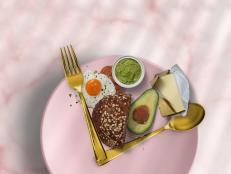Are You Aware of These Health Hazards in Your Kitchen?

Thinkstock Images, (C) 2007 Thinkstock Images
When you hear about an outbreak of foodborne illness, it usually involves a large food corporation or chain restaurant. But you may be just as likely — perhaps even more likely — to encounter food contamination in your own kitchen. "In general our food is very safe, but there are also things consumers can do help prevent problems," says Jeannie Sneed, Ph.D., research professor at Kansas State University and author of a study about how consumers' food-handling habits can lead to food contamination.
Here, the biggest culprits in the kitchen — and what you can do to minimize the risk.
Your hands: Washing your hands, thoroughly and often, is the single best way to prevent the spread of contamination in your kitchen. "Don't just do what I call the 'splash and dash,'" says Sneed. "You need to wash with soap, rub [your hands] together and rinse." And don't forget about the faucet. "If you've prepared chicken and have the juice on your hands, first you touch the faucets with your contaminated hands," says Randall Phebus, Ph.D., professor of food safety and defense, Kansas State University. "After you wash your hands, you want to wipe off the faucets with disinfectant."
Cloth towels: In Sneed's study, the kitchen towel was a hot spot for cross-contamination. Researchers witnessed people using a towel to wipe their hands without washing them, and then using the same towel again after washing them — which just recontaminates them. Using the same towel for dishes, hands and wiping countertops will also spread bacteria across surfaces. If you use cloth towels, keep one just for hands and one just for dishes, and wash them daily.
Sponges: "I know what grows in them, so sponges give me the creeps," says Phebus. But he also admits to using them in his kitchen. His solution is to sanitize them daily in the microwave. Wet the sponge and put it in for 20 seconds to kill off harmful bacteria harbored inside.
Cutting boards: If you're using the same board for chopping up meat and vegetables, you need to scrub it vigorously with warm, soapy water in between. Better yet, keep separate boards — one for meat, another for vegetables, fruit and bread. And when they get really scratched up, it's time to replace them. "Deep cuts and grooves in the surface make it much harder to disinfect," says Phebus.
Cell phones and tablets: Our electronic devices go everywhere — including the kitchen, where they can easily acquire bacteria or microorganisms from the food we're handling. "And think of where else you take it, like the bathroom," says Sneed. So if you take a break during cooking to check your phone, be sure to wash your hands before you return to prepping food.
Sally Wadyka is a Boulder, Colorado-based journalist who writes about nutrition, health and wellness.
Related Links:
































